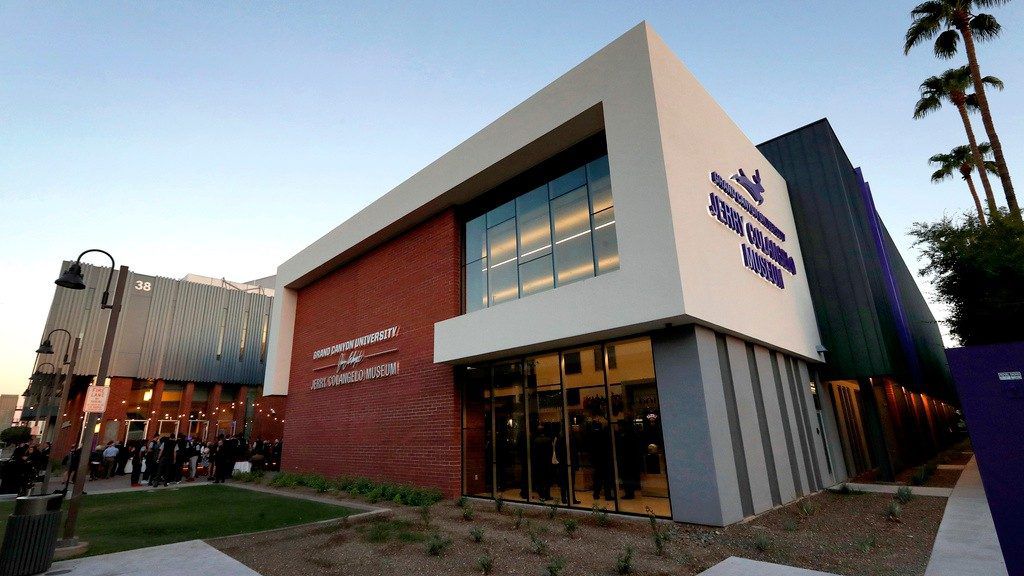The U.S. Department of Education has ordered a $37.7 million fine be levied against Arizona’s Grand Canyon University, the largest private Christian institution in the country, alleging the school misled its doctoral students, causing them to pay “an almost 25% premium” in additional tuition and fees for their programs.
“GCU lied about the cost of its doctoral programs to attract students to enroll,” said Federal Student Aid Chief Operating Officer Richard Cordray. “FSA takes its oversight responsibilities seriously. GCU’s lies harmed students, broke their trust, and led to unexpectedly high levels of student debt. Today, we are holding GCU accountable for its actions, protecting students and taxpayers, and upholding the integrity of the federal student aid programs.”
The school, in a statement, said that the federal agency is “unjustly targeting” GCU and claimed the fine “appears to be retaliation” for an ongoing lawsuit against the Department of Education regarding GCU’s attempt to return to non-profit status after 14 years operating as a for-profit institution. GCU, which has more than 100,000 students — mostly in online programs, is facing the largest fine of its kind ever issued by the U.S. Education Department.
“Grand Canyon University categorically denies every accusation in the Department of Education’s statement and will take all measures necessary to defend itself from these false accusations,” the university said in a statement released Tuesday.
In a letter to the university, Department of Education administrative actions director Susan Crim wrote that GCU misrepresented the total costs of certain doctoral programs to students, including costs with continuation courses. In its investigation, the Department of Education found that GCU has, since 2017, said that all but two of its current doctoral programs can be finished in 60 credit hours, or about 39 to 43 months, and costs between $40,000 and $49,805.
“The reality is that almost no students are able to complete their doctoral program withint he represented number of credits, resulting in increased cost and time for students to complete their programs,” the letter said, adding that fewer than 2% of 1,858 graduates completed their programs within the cost that GCU advertises.
That’s due to “continuation courses” necessary for 98% of graduates to complete their programs — courses that cost about $2,100 each.
The Education Department said that GCU attempted to explain that expanded costs, including continuation courses, were explained in fine print disclosures included in materials provided to students — though the Department of Education rejected those disclosures as insufficient.
In the Tuesday statement, GCU claimed the government was retaliating against the university for its ongoing non-profit status lawsuit. In 2016, after 14 years of operating as a for-profit institution, GCU filed to return to its private non-profit status. The Higher Learning Commission, an institutional accreditor, initially denied its application until 2018, when the HLC, the Internal Revenue Service and an Arizona state education board approved the change.
The Department of Education, however, didn’t sign off on the switch, denying non-profit status under the school’s relationship with Grand Canyon Education, a publicly-traded company that once owned GCU. In a statement to AZCentral in 2019, the Department of Education said that the deal between GCU and GCE doesn’t work under the Higher Education Act because “nonprofit institutions of higher education must operate for the benefit of the institution, not any other person or entity.” It also noted that the president of Grand Canyon University, Brian Mueller, is also is the CEO of Grand Canyon Education, calling them “obviously conflicting loyalties,” and calling into question whether or not GCU is “actually operating the institution,” owing to the number of functions outsourced to GCE.
The university, in its statement, also cited a favorable decision in Young v. GCU, a lawsuit filed by a former GCU doctoral student alleging that the school “designed its dissertation program so that doctoral students cannot complete their program and earn degrees in 60 credit hours.”
However, an appeals court earlier this year ruled that GCU breached contract and covenants of good faith and fair dealings, remanding the case back down to federal district court.
“The panel found Young had sufficiently shown the university had breached the implied covenant of good faith and fair dealing, which depends on the “reasonably expected benefits” of its agreement. They found the university cannot accept a student’s tuition and enroll them in a degree program without providing the faculty support required to complete the program’s requirements,” Courthouse News Service reported.
The Associated Press contributed to this report.








